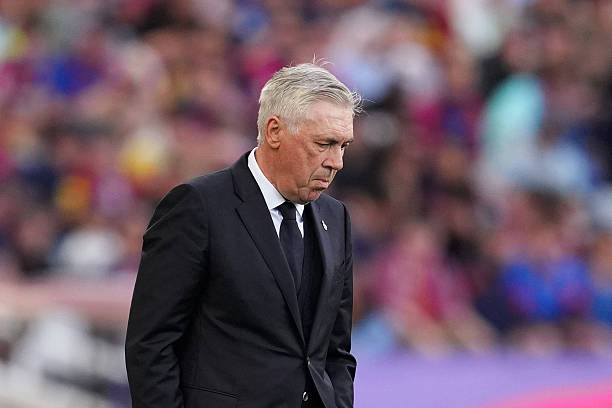In a move that has stunned the footballing world, Carlo Ancelotti has been confirmed as the next head coach of Brazil’s national team. The appointment of the Italian master tactician marks a radical shift for a footballing nation long defined by its home-grown flair and cultural pride.
Ancelotti, 65, will take charge officially on 26 May following the conclusion of his duties at Real Madrid. And with Brazil desperate to end a 24-year wait for World Cup glory, the stakes could hardly be higher.
Desperate Times, Decisive Measures
Since lifting their fifth World Cup title in 2002, Brazil’s fortunes on the grandest stage have taken a nosedive. From the haunting 7-1 thrashing at the hands of Germany in 2014 to the more recent heartbreak against Croatia in 2022, every knockout-stage meeting with a European side has ended in disappointment.
The latest chapter in their decline has unfolded in the current World Cup qualifying campaign. A shocking 4-1 home defeat to Argentina spelled the end for coach Dorival Junior and sent alarm bells ringing in the corridors of the Brazilian Football Confederation (CBF).
Enter Project Ancelotti — a bold, unprecedented initiative to bring in a serial winner with five Champions League titles and domestic success in every major European league.
Breaking Tradition
Brazil has historically resisted foreign influence at the national team level. In over 100 years, only three non-Brazilians have managed the side, and none since 1965. But the tide began to shift in 2019 when Portuguese coach Jorge Jesus led Flamengo to an extraordinary season, proving that European pragmatism could thrive on Brazilian soil.
Now, Ancelotti steps into a role that has never been held by a figure of his stature from abroad. South American football expert Tim Vickery explains: “This is an important wall coming down. Brazil knows it must evolve if it wants to compete with Europe’s best.”
A Coach Built for the Moment
Calm under pressure and universally respected, Ancelotti is known not for reinventing the wheel, but for mastering it. His ability to unify squads, instill discipline, and provide tactical clarity makes him an ideal figure to tame the chaos that has plagued Brazil in recent years.
His rapport with Brazilian stars like Vinicius Jr, Rodrygo, and Casemiro — forged at Real Madrid — gives him a head start. Vinicius, often inconsistent for the national team, has flourished under Ancelotti’s tutelage in Spain. If anyone can unlock his potential in the yellow shirt, it’s the Italian maestro.
Balancing Samba with Structure
The eternal tension in Brazilian football lies in balancing expressive brilliance with the discipline required to win modern tournaments. Ancelotti’s career is a case study in that harmony. His AC Milan sides combined elegance with efficiency. His Real Madrid tenure proved he could both manage egos and conjure miracles.
Now he’ll be expected to deliver similar results in a nation where football is not merely a sport, but a religion.
A New Era Dawns
This isn’t just about results. It’s about changing the very DNA of a team struggling to reconcile its history with the demands of the present. If Ancelotti succeeds, he won’t just win Brazil a sixth World Cup — he’ll have redefined what it means to play Brazilian football in the modern age.
For a country that once danced its way to dominance, the next step could be a measured march — led, of all people, by an Italian in a suit, raising an eyebrow on the touchline.



